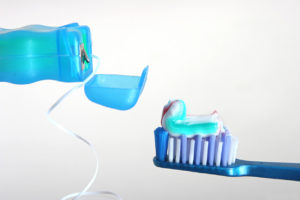
In recent years, dentists have really stepped up oral health education. Blogs, pamphlets, and magazine articles have given curious patients a terrific amount of information to digest. That said, we could always do better. At Ponte Vedra Complete Dentistry, one of our goals is to provide oral health and dental education to everyone within reach. Our blog serves as a great venue for this education. Today we felt compelled to provide a condensed guide to all things oral health. If you have questions, feel free to contact us any time electronically or call us at (904)285-7711.
We will begin by answering some frequently asked questions from patients. We hope you enjoy!
How Long Should I Brush My Teeth?
There have been many studies that have investigated this question. The results all seem to be in line with the fact that this is one of the most important aspects of oral hygiene. Studies have altered the type of brush, the technique, dominant hand vs. non-dominant hand, and a host of other aspects of teeth brushing. What was found is that the amount of time spent brushing dominates in importance. Right now, the overall consensus is that two minutes per session twice per day is pragmatically the most ideal amount of brushing. Many of the electric toothbrushes have even incorporated an audible pulse at 15 second intervals notifying the user when to move to the next section of the mouth.
What Toothbrush Should I Buy?
You may find that purchasing a toothbrush can be daunting. Are all those angles necessary? Is the expensive brand better than the generic? Is the electric better than manual? In answering these questions, we will try to make things simple. There is a multitude of studies over recent decades trying to understand brushing to answer all of these questions. Most dentists agree that a soft bristled brush is more than sufficient. With proper technique and time spent brushing, soft bristled brushes adequately remove plaque and debris. Some of the fancy angled brushes have been shown to reach deeper between the tooth and gums but as long as proper technique is used, a standard soft bristled toothbrush will suffice.
There are now a host of electric toothbrushes available for sale. There have been a few great studies finding that powered toothbrushes clean slightly better than manual brushes (better plaque control, higher levels of gum health, etc). Much of this, however, can be attributed to a general lack of technique from manual toothbrush users. If you would like to continue using a manual toothbrush, feel free to read our instructional blog about brushing technique. If you would like to read more about the electric vs. manual brushes, we encourage you to visit our blog “Are Powered Toothbrushes Better than Manual?”.
Is Flossing Actually Important?
If you do some searching you may find that there have been many articles written recently stating that flossing is not necessary. In a recent survey it was found that less than 50% of Americans floss daily and as much as 10% never floss at all. We feel it necessary to discuss the importance of daily flossing. Systematic research has shown small differences between flossing and non-flossing populations but the researchers made sure to note that there was minimal if any education on proper flossing methods.
Regardless of opinion, it is important to note that flossing cleans surfaces that simply cannot be cleaned with a toothbrush. Not only do toothbrushes fail to clean the surfaces between teeth adequately but floss can clean below the gum line much deeper than a toothbrush.
The Oral Health Diet
Dietary education is often presented in a manner that is so complex that the reader loses interest quickly. The optimal oral health diet, however, can be simplified. It should come as no surprise that a diet that keeps the body and mind in optimal health is the same diet that keeps the teeth and gums healthy. A diet high in sugar or carbohydrates makes us highly susceptible to decay and gum disease. Click here to learn more about the ideal oral health diet from the American Dental Association.



